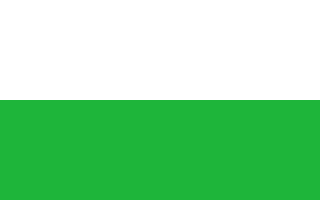
Burundi is one of the few countries in Africa, along with its closely linked neighbour Rwanda among others, to be a direct territorial continuation of a pre-colonial era African state.
Human occupation of Rwanda is thought to have begun shortly after the last ice age. By the 16th century, the inhabitants had organized into a number of kingdoms. In the 19th century, Mwami (king) Rwabugiri of the Kingdom of Rwanda conducted a decades-long process of military conquest and administrative consolidation that resulted in the kingdom coming to control most of what is now Rwanda. The colonial powers, Germany and Belgium, allied with the Rwandan court.
The Hutu, also known as the Abahutu, are a Bantu ethnic or social group native to the African Great Lakes region of Africa, primarily area now under Burundi and Rwanda. They mainly live in Rwanda, Burundi, and the eastern Democratic Republic of the Congo, where they form one of the principal population divisions alongside the Tutsi and the Twa.

The Tutsi, or Abatutsi, are a social class or ethnic group of the African Great Lakes region. Historically, they were often referred to as the Watutsi, Watusi, Wahuma, Wahima or the Wahinda. The Tutsi form a subgroup of the Banyarwanda and the Barundi peoples, who reside primarily in Rwanda and Burundi, but with significant populations also found in Uganda, the Democratic Republic of the Congo and Tanzania. They speak Rwanda-Rundi, a group of Bantu languages.
Domitien Ndayizeye is a Burundian politician who was President of Burundi from 2003 to 2005. He succeeded Pierre Buyoya, as president on 30 April 2003, after serving as Buyoya's vice president for 18 months. Ndayizeye remained in office until succeeded by Pierre Nkurunziza on 26 August 2005.

The Front for Democracy in Burundi is a Hutu progressive political party in Burundi.

The Burundian Civil War was an armed conflict lasting from 1993 to 2005. The civil war was the result of long standing ethnic divisions between the Hutu and the Tutsi ethnic groups in Burundi. The conflict began following the first multi-party elections in the country since independence from Belgium in 1962, and is seen as formally ending with the swearing in of Pierre Nkurunziza in August 2005. Children were widely used by both sides in the war. The estimated death toll stands at 300,000.

Presidential elections were held in Burundi on 1 June 1993 following the approval of a new constitution in a referendum the previous year. They were the first multi-party elections for the presidency, the only previous elections in 1984 having been held at a time when the country was a one-party state. This election was a watershed for Burundi, representing the end of a military backed Tutsi state, and the birth of democracy.

The position of Vice-President of the Republic of Burundi was created in June 1998, when a transitional constitution went into effect. It replaced the post of Prime Minister.

In 2007 the Government of Burundi consisted of a 20-member Council of Ministers appointed by the President. The Council of Ministers, together with the President and Vice-Presidents, forms the executive branch of government in the country.
Since Burundi's independence in 1962, there have been two events called genocides in the country. The 1972 mass killings of Hutus by the Tutsi-dominated army, and the 1993 mass killings of Tutsis by the majority-Hutu populace are both described as genocide in the final report of the International Commission of Inquiry for Burundi presented to the United Nations Security Council in 1996.

Hutu Power is a racist supremacist ideology propounded by Hutu extremists in Rwanda. It led to the 1994 Rwandan genocide against the Tutsi. Hutu Power political parties and movements included the Akazu, the Coalition for the Defence of the Republic and its Impuzamugambi paramilitary militia, and the governing National Republican Movement for Democracy and Development and its Interahamwe paramilitary militia.

The indigenous population of Burundi is divided into three major ethnic groups: Hutu, Tutsi, and Twa. Its ethnic make-up is similar to that of Rwanda. Tensions between ethnic groups exist and have become violent on several occasions since independence.
The largest ethnic groups in Rwanda are the Hutus, which make up about 85% of Rwanda's population; the Tutsis, which are 14%; and the Twa, 1%. Starting with the Tutsi feudal monarchy rule of the Tenth century, the Hutus were a subjugated social group. It was not until Belgian colonization that the tensions between the Hutus and Tutsis became focused on race, the Belgians propagating the myth that Tutsis were the superior ethnicity. The resulting tensions would eventually foster the slaughtering of Tutsis in the Rwandan genocide. Since then, government policy has changed to recognize one main ethnicity: "Rwandan".

Parliamentary elections were held in Burundi on 29 June 2015. The vote had been initially set for 5 June 2015, alongside local elections, but it was delayed due to unrest. Indirect elections to the Senate occurred on 24 July.

On 18–19 October 1965, a group of ethnic Hutu officers from the Burundian military attempted to overthrow Burundi's government in a coup d'état. The rebels were angry about the apparent favouring of ethnic Tutsi minority by Burundi's monarchy after a period of escalating ethnic tension following national independence from Belgium in 1962. Although the Prime Minister was shot and wounded, the coup failed and soon provoked a backlash against Hutu in which thousands of people, including the participants in the coup, were killed. The coup also facilitated a militant Tutsi backlash against the moderate Tutsi monarchy resulting in two further coups which culminated in the abolition of Burundi's historic monarchy in November 1966 and the rise of Michel Micombero as dictator.










